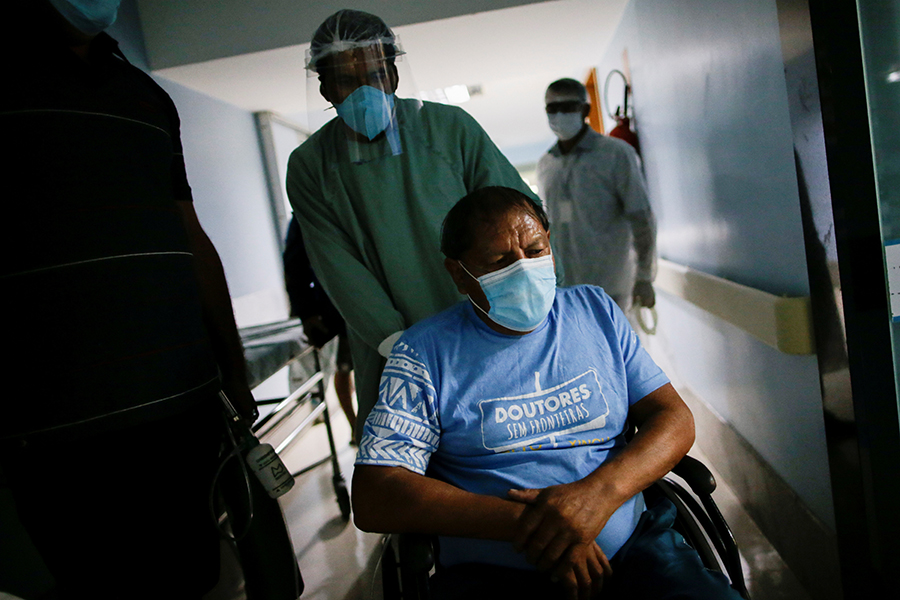Nation lends Brazil helping hand


COVID-19 has had an unprecedented impact on the Brazilian economy, with the government forecasting GDP to fall by 4.7 percent this year. According to Reuters, it would be the biggest decline since 1900.
Official data show unemployment standing at 12.9 percent, but analysts believe the figure could be much higher, as vast numbers of people living in small communities in forest and rural areas might not have been counted.
Many people in Brazil had never experienced lockdowns and there was no federal mandate to impose them. However, some state and local governments started enforcing their own lockdown measures in mid-March, when the country reported its first cases of COVID-19.
By March 24, more than 300 cases per day were being reported in Brazil, and Sao Paulo, the country's most populous city, went into lockdown. On the other hand, Rio de Janeiro did not impose lockdowns until May 8, when the number of new daily cases rose to 10,000.
Cities nationwide began loosening measures in June. Many observers said the lockdowns had not been strict enough and few people observed them. On Aug 5, Brazil reported 57,152 new cases.
Pedro Tunes, co-founder of the scientific portal Tunes Ambiental in Belo Horizonte, said: "Most people are just tired of quarantining and have stopped doing so, despite the number who are dying. Of course, a lot of people have to work, but even in cities where only essential businesses should continue, we see bosses making everyone go to work."
Purchases expand
China's potential to be a key partner for Brazil is rising once again, thanks to demand for agricultural produce such as soybeans and beef.
Mauricio Palma Nogueira, an agronomist and director of Athenagro, a consultancy in Sao Paulo, wrote in an opinion piece published by the Brazilian Beef Exporters Association, "The expansion of Chinese purchases coincides with the consolidation of Brazil as the main (beef) exporter in the world.































